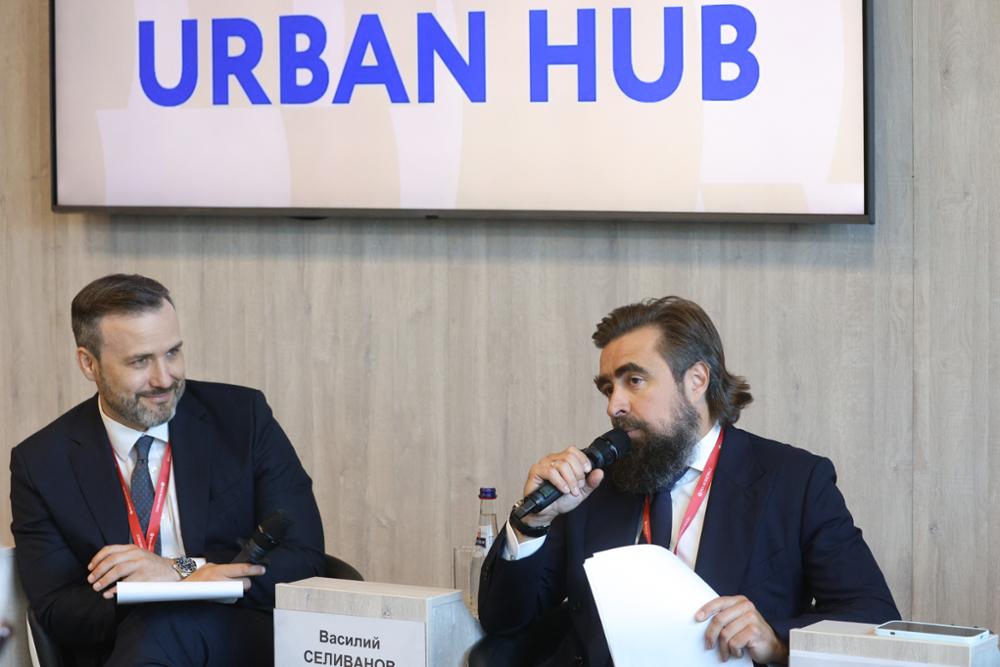
Digital Transformation of the Economy: International and Russian Experience in Digitizing the Transport Sector
KEY CONCLUSIONS
Development of digital technologies offers conceptually new opportunities for transport sector
“Export of transport services in Russia brings USD 15 billion. It is comparable to the amount of exported weapons and military equipment. Our task is to increase productivity, quality and safety of transport services, provide multimodality, seamless technologies for cargo and passenger transportation using digital technologies, without spending more on infrastructure development,” Alexey Semenov, Deputy Minister of Transport of the Russian Federation.
“Geoservices create a huge economic niche. As a whole, the estimated value of Russian geoservice industry is USD 6 billion,” Marina Zhunich, Director for Government Relations, Google LLC.
“In terms of automatization of business processes, Russian transport industry fails to keep pace with that of the US. But over the last couple of years we have noted positive dynamics,” Dmitry Shushkin, Chief Executive Officer, ABBYY Russia.
“We estimate the contribution of Runet economy to GDP to be almost 3 trillion roubles,” Sergei Plugotarenko, Director, Russian Association for Electronic Communications (RAEC).
Sharing experience and training IT specialists are an important condition for further digitalization of the industry
“We can talk about challenges and opportunities offered by digital technologies but if we do not have enough trained people who can control and enable successful functioning of all systems, it will be impossible,” Mariya Gabriel, Commissioner for Digital Economy and Society, European Commission.
“Sharing experience among colleagues will result in new interesting IT solutions, many ideas that over time will help transform our transport industry with digital technologies,” Evgeniy Kovnir, General Director, Digital Economy.
PROBLEMS
Imperfection of legal framework
“We face a huge number of barriers of both legal and technological nature,” Alexander Povalko, Chief Executive Officer, Chairman of the Management Board, RVC.
“Digitalization in transport brings a host of advantages, but we need to be careful as these transformations carry changes in standardization and legislation,” Olga Algayerova, Executive Secretary, United Nations Economic Commission for Europe (UNECE).
“It is crucial that the government and state agencies work out legal solutions that will allow to distinguish rights to possess data, access to data,” Igor Bevzyuk, General Director, 2050.Digital.
“There are very interesting solutions, but there is not enough regulation for them to become a leverage for digital economy and transport,” Dmitry Dyrmovsky, General Director, Member of the Board of Directors, Speech Technology Centre.
“We need as soon as possible to come up with the concept of data ownership; decide who owns data. Therefore, it is impossible to build business models of their monetization,” Aleksandr Egorov, General Direcor, Reksoft.
Slow transition to electronic document flow
“Benefits from using [electronic bills of lading — Ред.] are evident. If a business switches over to electronic document flow, but a part of these documents remains on paper, benefits of such digitalization are not clear,” Evgeny Filatov, General Director, SKB Kontur.
“It is important to digitalize a huge amount of paper documents,” Valentin Makarov, President, Russoft Association.
“To simplify the ‘digital pathway’ for passengers, we need to get rid of regulation for electronic boarding passes,” Yury Spektorov, Managing Partner, Bain & Company CIS.
Lack of a common database regarding transport and logistics
“How to link a road graph, to connect point A to point B? Any optimization begins with inputting all possible options. When we talk about highway logistics, there is no common source,” Mikhail Kudinov, Commercial Director, VeeRoute.
“The data are insufficient. The country is not fully digitalized in one system of coordinates. There is a need to develop a unified information base,” Alexey Semenov, General Director, Geoscan Group.
“Generally, in Russia it is really difficult to get even just a bus timetable to create a service. Regulators should note that,” Tigran Khudaverdyan, Managing Director, Yandex.
Unstable connection along transport routes
“Communication lines along highways and railways [remain — Ed.] overlooked,” Kirill Menshov, Vice President for Information Technology, Rostelekom.
“Efficacy of each element of the chain is crucial when we speak about multimodality,” Yulia Kudryavtseva, Director for Strategic Development, Foresight.
SOLUTIONS
Creation of integrated digital platforms
“A digital platform for transport system is being developed that will become a sort of trusted operating environment. It will receive information from different platforms in the form of data and send it to state monitoring agencies. As part of the digital platform for transport system, a monitoring system for cargo transportation has been created, a technological solution in the form of a navigation tool, a kind of onboard computer that can store various information,” Viktoria Scherbakova-Slyusarenko, Executive Director, Digital Transport and Logistics Association.
“We have fully prepared a platform to create and provide multimodal services for our clients. Simultaneously we are developing a platform for cargo transportation,” Evgeny Charkin, Information Technology Director, Russian Railways.
“Cars exchange has been created and it makes it possible not only for operators, but also for rolling stock owners who possess cars and have their optimization goals, to bring their cargo and available cars to the platform,” Artak Oganesyan, Deputy General Director, EPAM Systems.
“A system of short-term planning for operations control centre of Omsk oil refinery [has been created — Ed.]. The logistics service managed to rearrange the process of interaction with Russian Railways. Before they just supplied cars, but now, due to the forecast accuracy, they started supplying sets of cars. This considerably increased the handling capacity of the whole enterprise,” Pavel Adylin, Executive Director, Artezio.
Testing and implementation of new technologies
“This year there will be a breakthrough with 5G network. We are going to set up four pilot zones where the network will be fully deployed, including for various unmanned transport technologies,” Eduard Lysenko, Minister of the Government of Moscow, Head of the Department of Information Technologies of Moscow.
“We are carrying out a pilot project at the Oktyabrskaya Railway – implementation of a blockchain platform,” Evgeny Charkin, Information Technology Director, Russian Railways.
“We have started setting up the national technical committee ‘Artificial Intelligence’,” Sergey Garbuk, Director for Research Project, National Research University Higher School of Economics.








